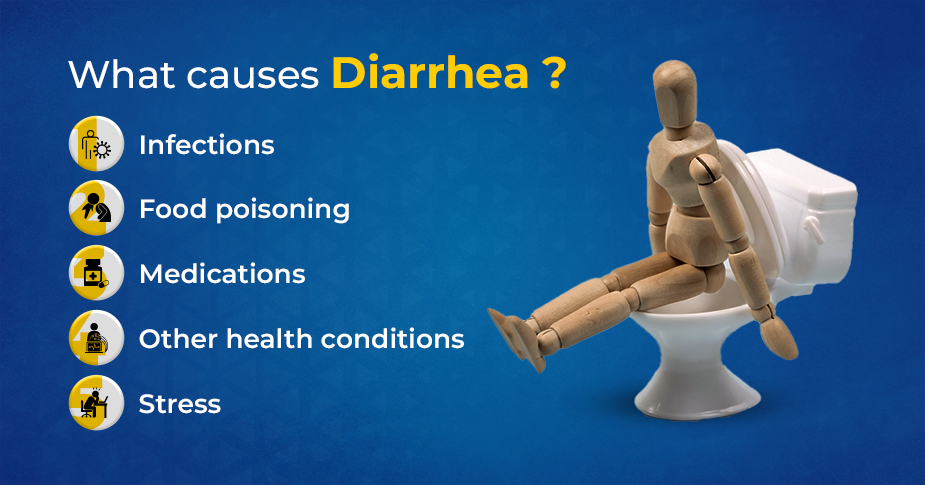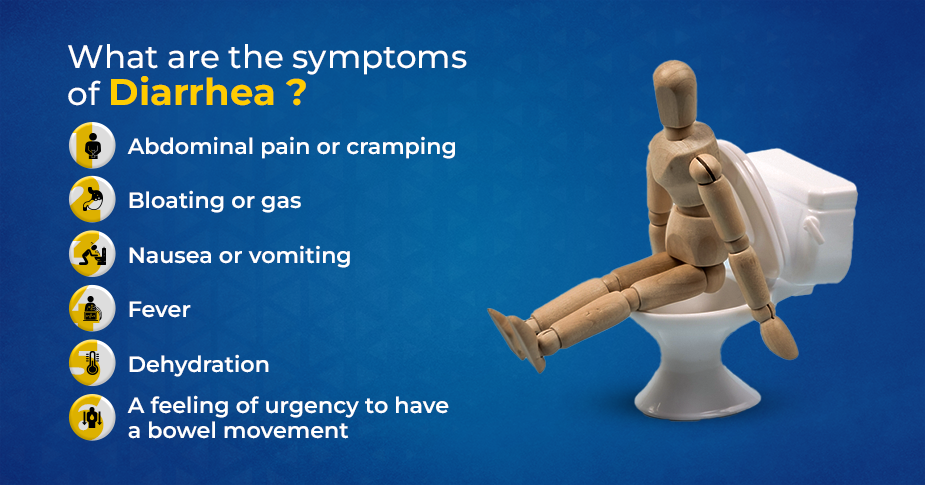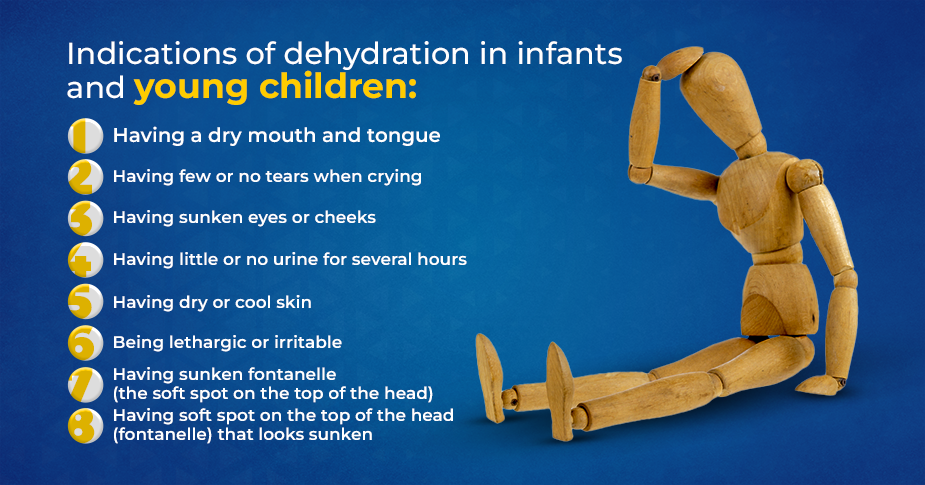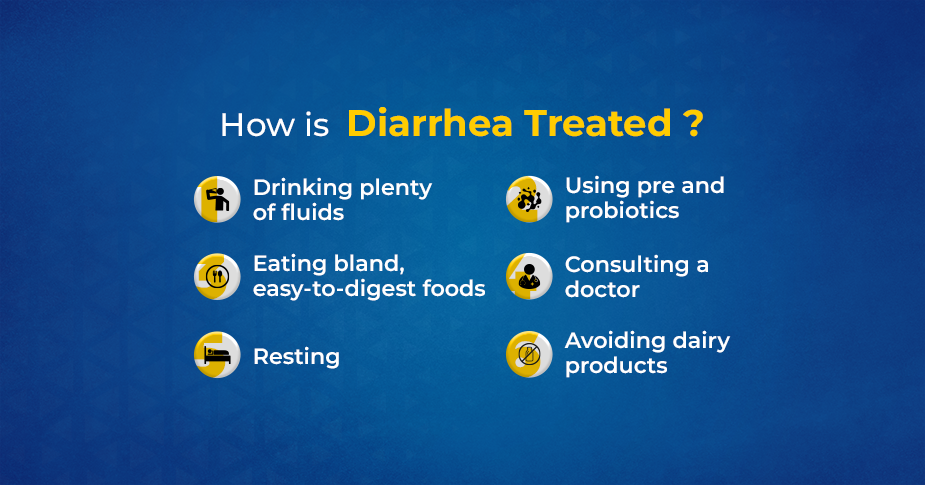설사에 대한 완전한 안내서: 원인, 증상 및 치료
2023년 7월 20일장 건강13분 읽기
설사의 원인은 무엇입니까
설사란 무엇입니까?
설사는 사람이 묽은 변을 보는 상태입니다. 이는 감염, 식중독 또는 특정 약물과 같은 다양한 요인으로 인해 발생할 수 있는 일반적인 소화 문제입니다. 설사는 염증성 장질환이나 소아 지방변증과 같은 다른 근본적인 건강 상태의 증상일 수도 있습니다.
정상적인 설사와 심한 설사는 어떤 점에서 다른가요?
정상적인 설사는 묽은 변과 복통이나 경련과 같은 기타 증상을 유발할 수 있는 일반적인 소화 문제입니다. 이는 감염, 식중독 또는 특정 약물로 인해 발생하는 경우가 많습니다.
심한 설사는 탈수 및 기타 합병증을 유발할 수 있는 더욱 심각한 형태의 설사입니다. 잦은 묽은 변, 복통 또는 경련, 배변이 급한 느낌이 일반적으로 특징입니다.
감염, 식중독 및 기타 근본적인 건강 문제로 인해 심각한 설사가 발생할 수 있습니다. 증상을 관리하고 합병증을 예방하려면 항생제나 정맥 주사액과 같은 의학적 치료가 필요할 수 있습니다.
설사가 정상인지 아니면 심각한지 확실하지 않은 경우 항상 의사와 상담하는 것이 가장 좋습니다. 그들은 진단을 제공하고 증상을 관리하고 합병증을 예방하는 데 도움이 되는 최선의 치료 과정을 추천할 수 있습니다.
설사의 원인은 무엇입니까?
설사를 유발할 수 있는 요인은 다음과 같이 다양합니다.
감염: 설사는 종종 박테리아, 바이러스 또는 기생충 감염으로 인해 발생합니다. 이는 오염된 음식이나 물을 통해 또는 감염된 사람과의 긴밀한 접촉을 통해 전염될 수 있습니다.
식중독: 박테리아, 바이러스 또는 독소에 오염된 음식이나 음료를 섭취하면 설사를 유발할 수 있습니다. 이를 식중독이라고 하며, 음식을 제대로 보관하지 않거나 조리하지 않으면 발생할 수 있습니다.
약물: 항생제 및 완하제와 같은 일부 약물은 부작용으로 설사를 유발할 수 있습니다.
기타 건강 상태: 설사는 염증성 장 질환, 소아 지방변증, 유당 불내증과 같은 근본적인 건강 상태의 증상일 수도 있습니다.
스트레스: 정서적 스트레스는 때때로 격렬한 운동이나 질병으로 인한 신체적 스트레스와 마찬가지로 설사를 유발할 수 있습니다.
설사의 증상은 무엇입니까?
설사의 주요 증상은 묽은 변입니다. 다른 일반적인 증상은 다음과 같습니다.
복통이나 경련
복부팽만감 또는 가스
배변이 급박하다는 느낌
메스꺼움 또는 구토
발열
설사 증상이 나타나면 탈수를 예방하기 위해 충분한 수분을 섭취하는 것이 중요합니다. 설사는 제대로 관리되지 않으면 영양실조와 같은 다른 합병증을 유발할 수도 있습니다. 증상이 심하거나 지속된다면 항상 의사와 상담하는 것이 가장 좋습니다.
설사
영유아의 탈수 징후:
영유아의 탈수 징후 및 증상은 성인의 탈수 징후 및 증상과 다를 수 있으며 다음과 같습니다.
입과 혀가 건조한 경우
울 때 눈물이 거의 또는 전혀 나오지 않음
눈이나 볼이 움푹 들어간 경우
머리 꼭대기에 움푹 들어간 것처럼 보이는 부드러운 부분(천문)이 있음
피부가 건조하거나 차가워진 경우
무기력하거나 짜증이 난다.
몇 시간 동안 소변이 거의 없거나 전혀 없는 경우
천문(머리 꼭대기의 부드러운 부분)이 함몰됨
설사
아기나 어린 아이가 설사를 하면 어떻게 해야 하나요?
아기나 어린 아이가 설사를 하는 경우, 탈수를 예방하고 증상을 관리하기 위한 조치를 취하는 것이 중요합니다. 도움이 될 수 있는 몇 가지 일반적인 조치는 다음과 같습니다.
아이에게 충분한 수분 공급: 설사로 인해 손실된 수분을 보충하는 것이 중요합니다. 아이에게 물, 구강 수분 보충 용액 또는 스포츠 음료나 프로바이오틱스(Ready to Drink Probiotics Ospor)와 같은 전해질이 풍부한 음료를 제공하십시오.
소량씩 자주 식사 제공: 아이에게 쌀, 바나나, 토스트, 삶은 감자 등 소화하기 쉬운 음식을 소량씩 자주 식사하게 하십시오. 매운 음식, 지방이 많은 음식, 섬유질이 많은 음식은 소화 기관을 자극하고 설사를 악화시킬 수 있으므로 피하십시오.
유제품 피하기: 유제품은 소화하기 어렵고 설사를 더욱 악화시킬 수 있습니다. 아이의 증상이 호전될 때까지는 피하는 것이 가장 좋습니다.
의사와 상담하기: 자녀의 증상이 심각하거나 지속되는 경우 또는 설사 관리 방법을 잘 모르는 경우 항상 의사와 상담하는 것이 가장 좋습니다. 그들은 보다 구체적인 치료와 조언을 제공할 수 있으며 설사를 유발할 수 있는 근본적인 건강 상태를 확인할 수도 있습니다.
성인의 탈수 징후:
성인 탈수의 징후와 증상은 다음과 같습니다.
갈증을 느낌
입이 마르다
피곤하거나 피곤함을 느낀다
소변 색깔이 짙은 경우
현기증이 나거나 현기증이 나는 느낌
피부가 건조한 경우
변비 느낌
귀하 또는 다른 사람이 탈수증을 앓고 있다고 의심되면 가능한 한 빨리 수분을 보충하는 것이 중요합니다. 이는 물이나 전해질이 풍부한 스포츠 음료와 같은 기타 음료를 마셔서 이루어질 수 있습니다.
본인이나 다른 사람이 탈수 상태인지 확실하지 않거나 증상이 심각한 경우에는 항상 의사와 상담하는 것이 가장 좋습니다.
설사는 어떻게 치료하나요?
설사 치료는 근본 원인에 따라 다르지만 도움이 될 수 있는 몇 가지 일반적인 조치는 다음과 같습니다.
충분한 수분 섭취: 설사로 인해 손실된 수분을 보충하는 것이 중요합니다. 물, 스포츠 음료, 맑은 국물이 좋은 선택입니다. 카페인과 알코올은 설사를 악화시킬 수 있으므로 피하십시오.
프리 및 프로바이오틱스 사용: 프리 및 프로바이오틱스는 장 건강을 개선하고 박테리아 감염과 싸우며 면역력을 높이는 데 도움이 될 수 있습니다.
자극적이지 않고 소화하기 쉬운 음식 섭취: 맵거나 지방이 많거나 섬유질이 많은 음식은 소화 기관을 자극하고 설사를 악화시킬 수 있으므로 피하세요. 대신 쌀, 바나나, 토스트, 삶은 감자 등 부드럽고 소화하기 쉬운 음식을 선택하세요.
의사와 상담: 증상이 심하거나 지속되는 경우, 또는 수분 섭취를 억제할 수 없는 경우 의사와 상담하는 것이 중요합니다. 그들은 보다 구체적인 치료와 조언을 제공할 수 있으며 설사를 유발할 수 있는 근본적인 건강 상태를 확인할 수도 있습니다.
휴식: 설사로 인해 지칠 수 있으므로 휴식을 취하고 몸이 회복되도록 하는 것이 중요합니다.
유제품 피하기: 유제품은 소화하기 어렵고 설사를 더욱 악화시킬 수 있습니다. 증상이 호전될 때까지 피하는 것이 가장 좋습니다.
설사를 없애는 데 도움이 되는 음식이 있나요?
네, 설사를 완화하는 데 도움이 되는 몇 가지 음식이 있습니다. 여기에는 다음이 포함됩니다.
바나나: 바나나는 칼륨과 기타 전해질의 좋은 공급원으로 설사로 인해 손실된 전해질을 보충하는 데 도움이 될 수 있습니다. 또한 소화하기 쉽고 느슨한 변을 굳히는 데 도움이 될 수 있습니다.
쌀: 일반 백미는 소화가 쉽고 대변의 양을 늘리는 데 도움이 됩니다. 또한 장에서 과도한 수분을 흡수하는 데 도움이 되어 설사를 줄일 수 있습니다.
삶은 감자: 감자에는 칼륨 함량이 높고 소화가 쉽습니다. 또한 느슨한 변을 굳히는 데 도움이 될 수 있습니다.
토스트: 일반 흰색 토스트는 대변을 단단하게 만드는 데 도움이 되는 소화하기 쉬운 또 다른 음식입니다. 또한 장에서 과도한 수분을 흡수하는 데 도움이 될 수 있습니다.
사과소스: 사과소스는 묽은 변을 단단하게 만드는 데 도움이 되는 섬유질의 일종인 펙틴의 좋은 공급원입니다. 소화도 쉽습니다.
맵고 지방이 많거나 섬유질이 많은 음식은 소화 기관을 자극하고 설사를 악화시킬 수 있으므로 피하는 것이 중요합니다. 카페인과 알코올도 피하는 것이 좋습니다. 카페인과 알코올은 몸의 탈수를 유발하고 설사를 더욱 악화시킬 수 있기 때문입니다. 무엇을 먹어야 할지 잘 모르겠으면 항상 의사나 등록 영양사와 상담하는 것이 가장 좋습니다.
설사 치료에 도움이 되는 음식이 있나요?
항생제가 설사를 일으킬 수 있나요?
예, 항생제는 부작용으로 설사를 유발할 수 있습니다. 항생제는 박테리아로 인한 감염을 치료하는 데 사용되는 약물입니다. 그러나 소화 시스템에서 좋은 박테리아를 죽여 설사를 유발할 수도 있습니다. 이는 항생제 관련 설사(AAD)로 알려져 있습니다.
설사를 예방할 수 있나요?
그렇습니다. 설사를 예방하는 데 도움이 될 수 있는 몇 가지 조치가 있습니다. 여기에는 다음이 포함됩니다.
정기적으로 손 씻기: 비누와 물로 손을 철저하고 정기적으로 씻으면 설사를 유발할 수 있는 감염의 확산을 줄이는 데 도움이 될 수 있습니다. 이는 화장실 사용 후, 날음식 취급 후, 아픈 사람과 접촉한 후에 특히 중요합니다.
식단에 프리바이오틱스와 프로바이오틱스 추가: 프리바이오틱스와 프로바이오틱스가 풍부한 식품이나 보충제를 섭취하면 면역 체계가 강화되고 세균성 질병 퇴치에 도움이 될 수 있습니다.
안전한 물 마시기: 박테리아, 바이러스, 기생충으로 오염된 물을 마시면 설사가 발생할 수 있습니다. 이를 방지하려면 신뢰할 수 있는 공급원에서 공급되는 안전하고 깨끗한 물만 마시는 것이 중요합니다.
오염된 음식 및 음료 피하기: 설사는 박테리아, 바이러스 또는 독소에 오염된 음식이나 음료를 섭취함으로써 발생할 수도 있습니다. 이를 방지하려면 음식을 적절하게 보관하고, 철저하게 조리하고, 오염될 수 있는 소스에서 나온 음식이나 음료를 섭취하지 않는 것이 중요합니다.
감염 예방접종: 백신은 설사를 유발할 수 있는 감염을 예방하는 데 도움이 될 수 있습니다. 설사가 흔한 지역으로 여행하는 경우, 어떤 백신이 권장될 수 있는지 의사와 상담하는 것이 좋습니다.
음식 및 음료 공유 피하기: 설사를 하는 사람과 음식 및 음료를 공유하면 병에 걸릴 위험이 높아질 수 있습니다. 감염 확산을 줄이려면 이러한 품목을 공유하지 않는 것이 가장 좋습니다.
설사 예방접종:
설사를 유발할 수 있는 감염을 예방하는 데 도움이 되는 여러 가지 백신이 있습니다. 여기에는 다음이 포함됩니다.
로타바이러스 백신: 이 백신은 유아에게 심한 설사의 일반적인 원인인 로타바이러스로부터 보호하기 위해 영유아에게 권장됩니다.
콜레라 백신: 이 백신은 콜레라가 흔한 지역으로 여행하는 성인에게 권장됩니다. 콜레라는 심각한 장액성 설사를 유발할 수 있고 치료하지 않으면 생명을 위협할 수 있는 감염입니다.
즉시.
장티푸스 백신: 이 백신은 장티푸스가 흔한 지역으로 여행하는 성인에게 권장됩니다. 장티푸스는 발열, 복통, 설사를 유발할 수 있는 감염입니다.
나이, 병력, 여행 계획을 바탕으로 어떤 백신이 권장될 수 있는지 의사와 상담하는 것이 항상 가장 좋습니다. 보다 구체적인 조언을 제공할 수 있으며 권장되는 모든 백신에 대한 최신 정보를 얻는 데도 도움이 될 수 있습니다.
설사 합병증:
설사는 제대로 관리하지 않으면 합병증을 유발할 수 있습니다. 설사로 인해 발생할 수 있는 합병증 중 일부는 다음과 같습니다.
탈수: 설사로 인해 신체의 체액과 전해질이 손실되어 탈수가 발생할 수 있습니다. 이로 인해 갈증, 구강 건조, 현기증, 어두운 색의 소변 등의 증상이 나타날 수 있습니다. 탈수는 특히 유아, 어린이, 노인의 경우 심각할 수 있으며 치료를 위해 입원이 필요할 수 있습니다.
영양실조: 설사는 음식에서 영양분을 흡수하는 신체의 능력을 방해하여 영양실조로 이어질 수도 있습니다. 이로 인해 체중 감소, 피로, 면역체계 약화 등의 증상이 나타날 수 있습니다.
전해질 불균형: 설사는 신체의 전해질 수준에 불균형을 일으킬 수 있으며, 이는 심장, 근육 및 신경의 기능에 영향을 미칠 수 있습니다. 이는 근육 약화, 불규칙한 심장 박동, 혼란 등의 증상을 유발할 수 있습니다.
감염: 설사는 때때로 Clostridioides difficile(C. diff) 또는 살모넬라와 같은 소화 시스템 감염으로 이어질 수 있습니다. 이러한 감염은 심각할 수 있으며 항생제 치료가 필요할 수 있습니다.
설사가 심하거나 지속된다면 의사와 상담하는 것이 중요합니다. 합병증을 예방하고 증상을 관리하는 데 도움이 되는 치료와 조언을 제공할 수 있습니다.
설사에 관해 언제 의사에게 연락해야 합니까?
심각하거나 지속적인 설사를 경험하거나 다음 증상 중 하나가 나타나면 의사에게 연락해야 합니다.
탈수: 탈수 증상에는 갈증, 구강 건조, 현기증, 어두운 색의 소변 등이 포함될 수 있습니다. 수분 섭취를 억제할 수 없거나 심각한 탈수 증상이 나타나면 의사에게 연락하는 것이 중요합니다.
발열: 발열은 감염의 징후일 수 있으며 때로는 설사를 유발할 수 있습니다. 38°C(100.4°F) 이상의 발열이 있거나 오한, 몸살 등 다른 감염 증상이 나타나면 의사에게 연락하는 것이 중요합니다.
대변 내 혈액: 대변 내 혈액은 염증성 장 질환이나 대장암과 같은 심각한 상태의 징후일 수 있습니다. 대변에 피가 섞여 나오는 경우 즉시 의사에게 연락하는 것이 중요합니다.
심한 복통 또는 경련: 심한 복통이나 경련은 맹장염이나 장 폐쇄와 같은 더 심각한 상태의 징후일 수 있습니다. 심한 복통이나 경련이 나타나면 의사에게 연락하는 것이 중요합니다.
쇠약 또는 현기증: 설사로 인해 신체의 체액과 전해질이 손실되어 쇠약과 현기증이 발생할 수 있습니다. 몸이 약하거나 어지러움을 느끼거나 일어서거나 걷는 데 어려움이 있는 경우에는 의사에게 연락하는 것이 중요합니다.
의사에게 전화해야 할지 확실하지 않은 경우에는 항상 의사에게 문의하여 조언을 구하는 것이 가장 좋습니다. 증상을 관리하고 합병증을 예방하는 데 도움이 되는 치료와 조언을 제공할 수 있습니다.
참고자료:
https://www.healthline.com/health/diarrhea
이전 게시물
칼슘 섭취량 최대화: 최적의 건강을 위한 팁과 요령
The Complete Guide to Diarrhea: Its Causes, Symptoms, and Treatment
July 20, 2023Gut Health13 min read

What is diarrhea?
Diarrhea is a condition in which a person has loose, watery stools. It is a common digestive problem that can be caused by a variety of factors, such as infections, food poisoning, or certain medications. Diarrhea can also be a symptom of other underlying health conditions, such as inflammatory bowel disease or celiac disease.
In what ways are normal diarrhea and severe diarrhea different?
Normal diarrhea is a common digestive problem that can cause loose, watery stools and other symptoms, such as abdominal pain or cramping. It is often caused by infections, food poisoning, or certain medications.
Severe diarrhea is a more serious form of diarrhea that can cause dehydration and other complications. Frequent, watery stools, abdominal pain or cramping, and a feeling of urgency to have a bowel movement usually characterize it.
Infections, food poisoning, and other underlying health issues can all produce severe diarrhea. It may require medical treatment, such as antibiotics or intravenous fluids, to manage the symptoms and prevent complications.
If you are unsure whether your diarrhea is normal or severe, it is always best to consult a doctor. They can provide a diagnosis and recommend the best course of treatment to help manage your symptoms and prevent complications.
What causes diarrhea?
There are many different factors that can cause diarrhea, including:
- Infections: Diarrhea is often caused by infections from bacteria, viruses, or parasites. These can be spread through contaminated food or water, or through close contact with someone who is infected.
- Food poisoning: Consuming food or drinks that are contaminated with bacteria, viruses, or toxins can cause diarrhea. This is known as food poisoning, and it can happen if food is not stored or cooked properly.
- Medications: Some medications, such as antibiotics and laxatives, can cause diarrhea as a side effect.
- Other health conditions: Diarrhea can also be a symptom of underlying health conditions, such as inflammatory bowel disease, celiac disease, or lactose intolerance.
- Stress: Emotional stress can sometimes cause diarrhea, as can physical stress from intense exercise or illness.

What are the symptoms of diarrhea?
The main symptom of diarrhea is loose, watery stools. Other common symptoms can include:
- Abdominal pain or cramping
- Bloating or gas
- A feeling of urgency to have a bowel movement
- Nausea or vomiting
- Fever
If you are experiencing diarrhea, it is important to drink plenty of fluids to prevent dehydration. Diarrhea can also lead to other complications, such as malnutrition, if not properly managed. If your symptoms are severe or persistent, it is always best to consult a doctor.

Indications of dehydration in infants and young children:
The signs and symptoms of dehydration in infants and young children can be different from those in adults and may include:
- Having a dry mouth and tongue
- Having few or no tears when crying
- Having sunken eyes or cheeks
- Having a soft spot on the top of the head (fontanelle) that looks sunken
- Having dry or cool skin
- Being lethargic or irritable
- Having little or no urine for several hours
- Having sunken fontanelle (the soft spot on the top of the head)

What do I do if my baby or young child has diarrhea?
If your baby or young child has diarrhea, it is important to take steps to prevent dehydration and manage their symptoms. Some general measures that can help include:
- Giving your child plenty of fluids: It is important to replace the fluids that are lost due to diarrhea. Offer your child water, oral rehydration solutions, or electrolyte-rich drinks, such as sports drinks or probiotics (Ready to Drink Probiotics Ospor).
- Offering small, frequent meals: GIve your child small, frequent meals of easy-to-digest foods, such as rice, bananas, toast, and boiled potatoes. Avoid spicy, fatty, or high-fiber foods, as these can irritate the digestive system and worsen diarrhea.
- Avoiding dairy products: Dairy products can be hard to digest and can make diarrhea worse. It is best to avoid them until your child’s symptoms improve.
- Consulting a doctor: If your child’s symptoms are severe or persistent, or if you are unsure how to manage their diarrhea, it is always best to consult a doctor. They can provide more specific treatment and advice, and can also check for any underlying health conditions that may be causing the diarrhea.
Indications of dehydration in adults:
The signs and symptoms of dehydration in adults can include:
- Feeling thirsty
- Having a dry mouth
- Feeling tired or fatigued
- Having dark-colored urine
- Feeling dizzy or lightheaded
- Having dry skin
- Feeling constipated
If you suspect that you or someone else is dehydrated, it is important to rehydrate as soon as possible. This can be done by drinking water or other fluids, such as electrolyte-rich sports drinks.
If you are unsure whether you or someone else is dehydrated, or if your symptoms are severe, it is always best to consult a doctor.
How is diarrhea treated?
The treatment for diarrhea depends on the underlying cause, but some general measures that can help include:
- Drinking plenty of fluids: It is important to replace the fluids that are lost due to diarrhea. Water, sports drinks, and clear broths are good choices. Avoid caffeine and alcohol, as these can worsen diarrhea.
- Using pre and probiotics: Pre and probiotics can improve gut health and can help fight bacterial infections and increase immunity.
- Eating bland, easy-to-digest foods: Avoid spicy, fatty, or high-fiber foods, as these can irritate the digestive system and worsen diarrhea. Instead, choose bland, easy-to-digest foods, such as rice, bananas, toast, and boiled potatoes.
- Consulting a doctor: If your symptoms are severe or persistent, or if you are unable to keep fluids down, it is important to consult a doctor. They can provide more specific treatment and advice, and can also check for any underlying health conditions that may be causing the diarrhea.
- Resting: Diarrhea can be exhausting, so it is important to rest and allow your body to recover.
- Avoiding dairy products: Dairy products can be hard to digest and can make diarrhea worse. It is best to avoid them until your symptoms improve.

Are there any foods that can help my diarrhea go away?
Yes, there are some foods that can help to alleviate diarrhea. These include:
- Bananas: bananas are a good source of potassium and other electrolytes, which can help to replace those lost due to diarrhea. They are also easy to digest and can help to firm up loose stools.
- Rice: plain white rice is easy to digest and can help to bulk up the stool. It can also help to absorb excess water in the intestines, which can reduce diarrhea.
- Boiled potatoes: potatoes are high in potassium and are easy to digest. They can also help to firm up loose stools.
- Toast: plain, white toast is another easy-to-digest food that can help to firm up the stool. It can also help to absorb excess water in the intestines.
- Applesauce: applesauce is a good source of pectin, a type of fiber that can help to firm up loose stools. It is also easy to digest.
It is important to avoid spicy, fatty, or high-fiber foods, as these can irritate the digestive system and worsen diarrhea. It is also a good idea to avoid caffeine and alcohol, as these can dehydrate the body and make diarrhea worse. If you are unsure what to eat, it is always best to consult a doctor or a registered dietician.

Can antibiotics cause diarrhea?
Yes, antibiotics can cause diarrhea as a side effect. Antibiotics are medications that are used to treat infections caused by bacteria. However, they can also kill off good bacteria in the digestive system, which can lead to diarrhea. This is known as antibiotic-associated diarrhea (AAD).
Can diarrhea be prevented?
Yes, there are some measures that can help to prevent diarrhea. These include:
- Washing your hands regularly: Washing your hands thoroughly and regularly with soap and water can help to reduce the spread of infections that can cause diarrhea. This is especially important after using the bathroom, handling raw food, or coming into contact with someone who is sick.
- Adding pre and probiotics in our diet: Consuming foods or supplements rich in pre and probiotics provide a boost to the immune system and can help fight of bacterial diseases.
- Drinking safe water: Diarrhea can be caused by drinking water that is contaminated with bacteria, viruses, or parasites. To avoid this, it is important to only drink safe, clean water from a trusted source.
- Avoiding contaminated food and drinks: Diarrhea can also be caused by consuming food or drinks that are contaminated with bacteria, viruses, or toxins. To avoid this, it is important to store food properly, cook it thoroughly, and avoid consuming food or drinks from sources that may be contaminated.
- Vaccinating against infections: Vaccines can help to prevent infections that can cause diarrhea. If you are traveling to an area where diarrhea is common, it is a good idea to speak to a doctor about which vaccines may be recommended.
- Avoiding the sharing of food and drinks: sharing food and drinks with someone who has diarrhea can increase your risk of getting sick. It is best to avoid sharing these items to reduce the spread of infection.
Vaccination for Diarrhea:
There are several vaccines that can help to prevent infections that can cause diarrhea. These include:
- Rotavirus vaccine: this vaccine is recommended for infants and young children to protect against rotavirus, a common cause of severe diarrhea in young children.
- Cholera vaccine: this vaccine is recommended for adults who are traveling to areas where cholera is common. Cholera is an infection that can cause severe watery diarrhea and can be life-threatening if not treated promptly.
- Typhoid vaccine: this vaccine is recommended for adults who are traveling to areas where typhoid fever is common. Typhoid fever is an infection that can cause fever, stomach pain, and diarrhea.
It is always best to speak to a doctor about which vaccines may be recommended for you, based on your age, medical history, and travel plans. They can provide more specific advice and can also help to ensure that you are up-to-date on all recommended vaccines.
Complications of diarrhea:
Diarrhea can lead to complications if it is not properly managed. Some of the possible complications of diarrhea include:
- Dehydration: diarrhea can cause the body to lose fluids and electrolytes, which can lead to dehydration. This can cause symptoms such as thirst, dry mouth, dizziness, and dark-colored urine. Dehydration can be serious, especially in infants, young children, and older adults, and it can require hospitalization for treatment.
- Malnutrition: Diarrhea can also interfere with the body’s ability to absorb nutrients from food, which can lead to malnutrition. This can cause symptoms such as weight loss, fatigue, and a weakened immune system.
- Electrolyte imbalances: diarrhea can cause imbalances in the body’s electrolyte levels, which can affect the function of the heart, muscles, and nerves. This can cause symptoms such as muscle weakness, irregular heartbeat, and confusion.
- Infections: diarrhea can sometimes lead to infections in the digestive system, such as Clostridioides difficile (C. diff) or salmonella. These infections can be serious and may require treatment with antibiotics.
If you are experiencing severe or persistent diarrhea, it is important to consult a doctor. They can provide treatment and advice to help prevent complications and manage your symptoms.
When should I call my doctor about diarrhea?
You should call your doctor if you are experiencing severe or persistent diarrhea, or if you are experiencing any of the following symptoms:
- Dehydration: symptoms of dehydration can include thirst, dry mouth, dizziness, and dark-colored urine. If you are unable to keep fluids down or if you are experiencing severe dehydration, it is important to call your doctor.
- Fever: a fever can be a sign of infection, which can sometimes cause diarrhea. If you have a fever of 100.4°F (38°C) or higher, or if you are experiencing other symptoms of infection, such as chills or body aches, it is important to call your doctor.
- Blood in the stool: blood in the stool can be a sign of a serious condition, such as inflammatory bowel disease or colorectal cancer. If you notice blood in your stool, it is important to call your doctor right away.
- Severe abdominal pain or cramping: severe abdominal pain or cramping can be a sign of a more serious condition, such as appendicitis or bowel obstruction. If you are experiencing severe abdominal pain or cramping, it is important to call your doctor.
- Weakness or dizziness: diarrhea can cause the body to lose fluids and electrolytes, which can lead to weakness and dizziness. If you are feeling weak or dizzy, or if you are having trouble standing up or walking, it is important to call your doctor.










